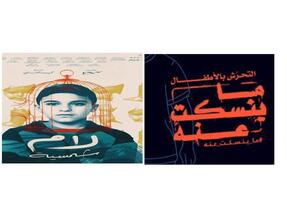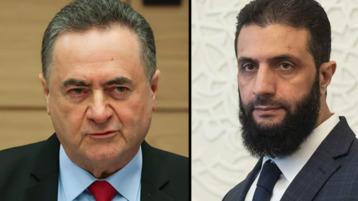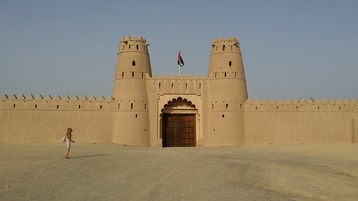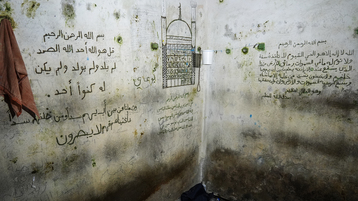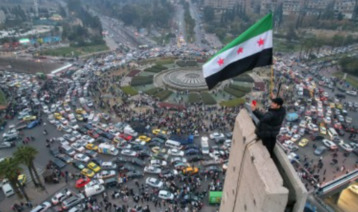-
Iranian regime seems confused by Biden’s decisions
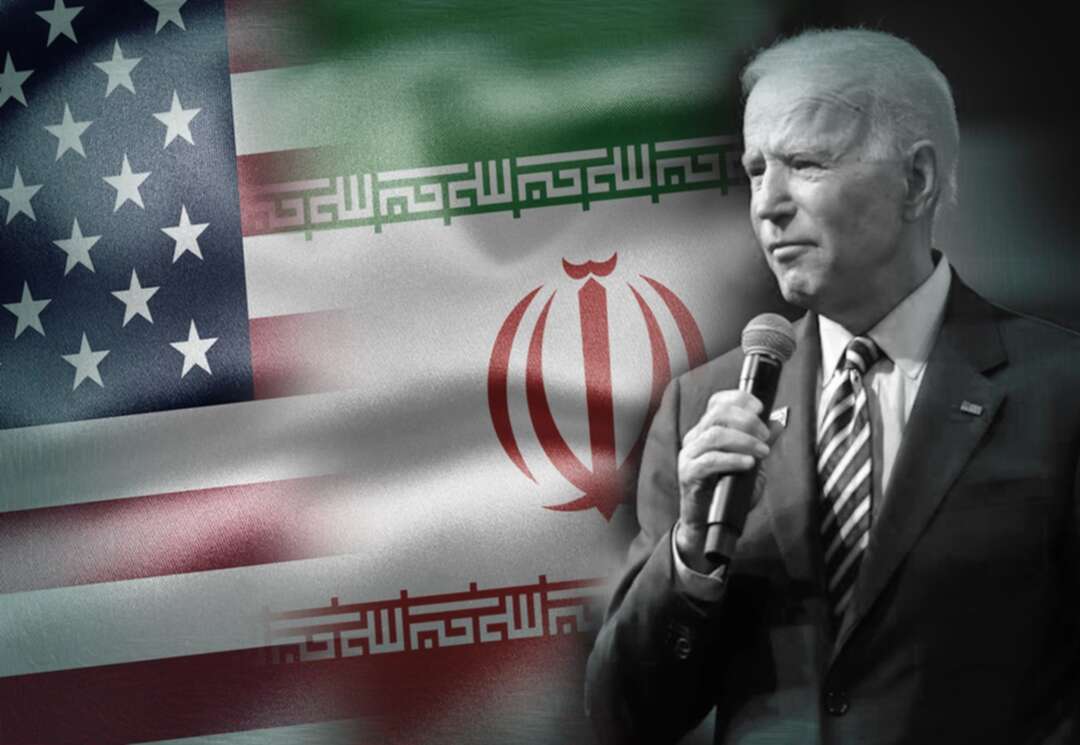
While Iran is mired in a social, economic, and political quagmire due to widespread and systematic corruption and its officials’ incompetence, the regime’s leaders are knocking on every door to find a way out of this situation. The regime’s Supreme Leader Khamenei and President Rouhani, who faced sanctions from the Trump administration and have been under severe economic pressure, had invested on US elections, hoping that with US President Biden’s victory, he would immediately return to the Joint Comprehensive Plan of Action (JCPOA) and lift sanctions, and release Iran’s blocked funds so that the clerics could once again sell oil and perhaps revive their dead economy.
This is because nearly 60 million of Iran’s 82 million people live below the poverty line. This figure covers 90% of workers in some provinces. Due to the high cost of housing and the inability of people to pay rent, 38 million people have moved to the outskirts of cities and live in very poor conditions, and while the poverty line has reached above 10 million tomans, the salaries of many workers and employees are less than 3 million tomans. Some of these workers and employees have not received their meager salaries for several months. Many people have not tasted meat for several months and many foods have been removed from their diet. Some even buy their daily bread from their neighborhood bakeries in installments and pay for it later.
The Covid-19 pandemic has also exasperated their situation. According to the National Council of Resistance of Iran (NCRI), more than 216,000 people have died from the deadly virus with no vaccine in sight.
Khamenei is still reeling from the November 2019 nationwide protests that seriously threatened his regime. The regime’s Supreme Leader sees the pandemic as an opportunity for his regime’s survival. He used it as an excuse to prevent protests, used it as a smoke screen for his regime’s inefficiency and systematic corruption and at the same time put pressure on the United States to lift sanctions. He banned the Pfizer and Moderna vaccines in Iran and delayed widespread vaccination while encouraging the domestic vaccine production, which is expected to reach production at the end of next summer. However, his decision was met with such negative reactions by Iranians that the regime was forced to import a limited number of vaccines from Russia to douse resentment and dissatisfaction.
But after Biden got to the White House, contrary to Khamenei and Rouhani predictions, the United States conditioned its return to the JCPOA on Iran reversing all its actions that violated the JCPOA, and added Iran’s missile program and its meddling in the region to the mix, as new conditions that should be negotiated within the framework of JCPOA.
The prospect of reaching a new agreement between Iran and the United States to break the deadlock now seems bleak.
For Iran, the return of the US to the 2015 deal, according to which Iran’s restrictions on its nuclear program would expire in almost four years, without getting into its missiles and regional terrorism, is ideal. In addition, sanctions would be lifted, and Iran could sell oil at the same rate of 2.5 million barrels per day, thus, both economically and politically, both inside and outside Iran, show that it has been able to resist and defeat the US.
To this end, it has resorted to maneuvers that increase the pressure on Biden. Some examples of these maneuvers are the ratification of a bill by Iran’s Parliament saying that if sanctions were not lifted by February 23, it would withdraw from the NPT annex and will no longer allow IAEA inspectors access and intrusive inspections of its nuclear sites. Another example was its missile attack on the US Consulate in Erbil, Iraq which the regime thought was as a way to show the new US administration its “regional power”.
Although Biden wants to defuse tensions with Iran, he can by no means return to the same situation in 2015 because many American politicians from both the Democratic and Republican parties and US regional allies, including Saudi Arabia and Israel believe the 2015 agreement is no longer acceptable.
A new agreement that can be called the 2021 agreement is needed now. Even EU countries that were staunch supporters of the JCPOA, including France and Germany, are now talking about the need for new negotiations.
Khamenei will not give up his missile program and his terrorism in the region, because without having an atomic bomb, he considers these levers as his only means of power and survival, especially since the Iranian army, despite having more personnel, is weak and ill equipped compared to regional countries.
Therefore, accepting the US’s new conditions would be poisonous for Khamenei, although it might give the regime short term relief, in a very near future it will lead to the end of the already weak regime. Here is why: The regime is a theocracy which cannot meet the demands of Iranians who hate their religious rulers. Iran’s angry population who are suffering under poverty are sick and tired of the regime’s institutionalized corruption. If Khamenei accepts a new 2021 deal, it will mean he has bowed to the US despite the regime’s 42 years of anti-American rhetoric. This will lead to the collapse of the ruling elite and even the IRGC, which is the regime’s repressive apparatus, will crumble. It remains to be seen whether Khamenei will accept the new conditions or whether, by continuing in the current path, will risk the wrath of angry masses who are waiting for a spark to once again take to the streets and overthrow their dictators once and for all.
Cyrus Yaqubi is a Research Analyst and Iranian Foreign Affairs Commentator investigating the economy of the middle east countries that are relying on the oil revenue and comparing their progress to their ruling system, specially covering a variety of topics about Iran.
BY: Cyrus Yaqubi
Tags
You May Also Like
Popular Posts
Caricature
BENEFIT Sponsors Gulf Uni...
- April 17, 2025
BENEFIT, the Kingdom’s innovator and leading company in Fintech and electronic financial transactions service, has announced its sponsorship of the “Innovation and Sustainable Technology Solutions Competition (GU - IST Solutions), hosted by Gulf University at its main campus.
This strategic sponsorship reflects BENEFIT’s active role in advancing technological innovation and fostering sustainable solutions to future challenges. It also seeks to empower Bahraini youth by enhancing their skills, capabilities, and competitiveness in innovation and solution development—contributing meaningfully to the broader goals of sustainable development across all sectors.
As part of BENEFIT’s active involvement in the competition, the company has announced that Hanan Abdulla Hasan, Senior Manager of Public Relations and Communication, will serve on the competition’s supervisory committee. Her upcoming participation reflects BENEFIT’s forward-looking commitment to championing academic and professional excellence.
Commenting on the occasion, Hanan Abdulla Hasan, Senior Manager of Public Relations and Communication at BENEFIT, said, “We are privileged to support this pioneering initiative, which aligns seamlessly with BENEFIT’s enduring commitment to fostering innovation and nurturing the potential of Bahrain’s youth. Our participation is rooted in a deep sense of social responsibility and a firm belief in the pivotal role of innovation in shaping a sustainable future. Through such platforms, we seek to empower the next generation with the knowledge, skills, and foresight required to develop impactful solutions that address future challenges, in line with the United Nations Sustainable Development Goals 2030.”
Dr. Aseel Al Ayash Dean of the College of Engineering in Gulf University commented, “We extend our sincere gratitude to BENEFIT for their generous sponsorship and support of the Innovation and Sustainable Technology Solutions Competition. This contribution plays an instrumental role in helping us achieve the strategic goals of this initiative, namely, cultivating a culture of innovation and sustainability, encouraging efforts that address the imperatives of sustainable development, and enhancing the practical and professional capabilities of our students and participants.”
The event will bring together a diverse spectrum of participants, including secondary school students, university undergraduates, engineers, industry professionals, entrepreneurs, academic researchers, and subject matter experts representing a wide range of disciplines.
The competition seeks to inspire participants to develop and present innovative, sustainable technologies aimed at addressing pressing environmental, social, and economic challenges. It encourages the formulation of business models that integrate advanced technological solutions with core principles of sustainability. Moreover, it serves as a platform for emerging leaders, entrepreneurs, and innovators to contribute to the advancement of the Sustainable Development Goals, promote the ethos of responsible technology, and demonstrate its transformative potential across various sectors.
Attendees will have the opportunity to view a series of project presentations submitted by participants, covering diverse areas such as eco-friendly product design, smart and sustainable innovations, renewable energy technologies, water conservation and management, waste minimisation and recycling, green architectural solutions, and sustainable transportation systems. Outstanding projects will be formally recognised and awarded at the conclusion of the event.
opinion
Report
ads
Newsletter
Subscribe to our mailing list to get the new updates!



